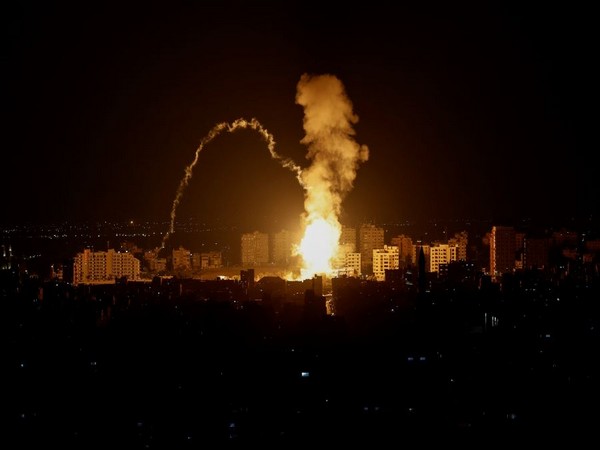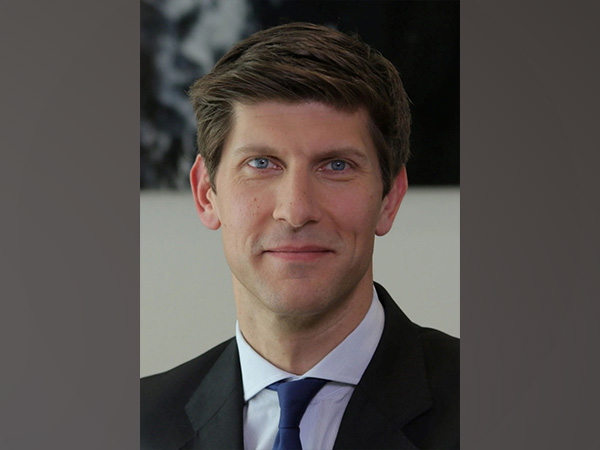
Zionist entity faces growing pressure over Gaza ceasefire
Feb 14, 2024
Gaza [Palestine], February 14: The Zionist entity faced growing international pressure Tuesday to agree to a ceasefire with Hamas, as it prepared for an incursion into the crowded southern Gaza city of Rafah where more than a million Palestinians are trapped. CIA director William Burns met with Mossad chief David Barnea in Cairo for a new round of talks on a Qatari-brokered plan to temporarily halt fighting in exchange for Hamas freeing people held captive in Gaza. The two intelligence chiefs were joined by Qatar's prime minister and Egyptian officials, Egyptian media reported - two countries in the middle of mediation efforts as ceasefire proposals bounce back and forth between the two sides.
A day after Zionist forces said they rescued two of the captives, the families of the remaining captives made an emotional plea to Barnea and the Zionist delegation ahead of the Cairo talks: "Do not return until everyone comes home - the living and the dead".
The campaign group, Hostages and Missing Families Forum, has been urging the Zionist government to exhaust every option to return some 130 hostages still believed to be in Gaza. The Zionist entity says 29 of them are presumed dead.
The group called it a "once-in-a-lifetime mission" and said they must "not return without a deal". Hamas fighters took about 250 people captive in an attack on communities and army bases near the Gaza-Zionist entity border that resulted in the deaths of about 1,160 people, mostly civilians, according to an AFP tally based on official Zionist figures.
At least 28,473 people, mostly women and children, have been killed in the Zionist entity's relentless bombardment and ground offensive in Gaza since then, according to the health ministry in the Palestinian territory.
The Cairo meeting came after the United States and the United Nations warned the Zionist entity against a ground offensive into Rafah without a plan to protect civilians, who say they have nowhere left to go. With the city on edge, some of Rafah's residents started to dismantle their makeshift tents and prepared to move on again. "We are sleeping in the street, (the tent) doesn't have a roof, it's made of nylon - if it gets hit by a missile, you will die instantly," said Gazan Fayez Abed.
After White House talks with Jordan's King Abdullah II on Monday, US President Joe Biden said civilians in Rafah "need to be protected", calling them "exposed and vulnerable". King Abdullah pushed for a "lasting ceasefire" to end the more than four-month-old war, warning a Zionist attack on Rafah would "produce another humanitarian catastrophe". Other countries cautioned the Zionist entity against a Rafah ground assault, including China, Germany and Norway, while Italy said the Zionist entity's bombing in Gaza had been "disproportionate".
'We want to be ready'
After rejecting Hamas's terms for a truce last week, the Zionist entity conducted a Monday pre-dawn raid in Rafah that freed two hostages and killed around 100 people. Prime Minister Benjamin Netanyahu hailed the operation that freed Fernando Simon Marman, 60, and Luis Har, 70, as "perfect", while the Palestinian foreign ministry said the deaths of dozens of Gazans amounted to a "massacre".
The rare rescue mission came hours after Netanyahu spoke with Biden, who reiterated his opposition to a major assault on the crowded area. But the Zionist leader said "complete victory" cannot be achieved without the elimination of Hamas' last battalions in Rafah. The United States has angered some Middle East allies by repeatedly refusing to back a full ceasefire, with Washington saying it supports the Zionist entity's drive to eradicate Hamas and calling for shorter pauses with hostage-prisoner swaps instead.
A Hamas official told AFP they were waiting for the outcome of the Cairo meeting but were "open to discussing any initiative that achieves an end to aggression and war". Over half of Gaza's 2.4 million people have sought refuge in Rafah, pressed up against the Egypt border in makeshift camps where they face outbreaks of hepatitis and diarrhea, and a scarcity of food and water.
AFP saw some families, already displaced several times, dismantling their tents and leaving in cars, vans or using horse and carts. "We escaped the north with empty hands, then we escaped Khan Yunis with almost empty hands," said one, Ismail Joundiyah. "We want to be ready this time."
No safe place
Netanyahu has said the Zionist entity would provide "safe passage" to civilians trying to leave, but foreign governments, Gazans and aid groups have questioned where they could go. "There is no place that is currently safe in Gaza," said United Nations spokesman Stephane Dujarric.
A report in the Wall Street Journal Tuesday said the Zionist entity was proposing to create 15 campsites of around 25,000 tents each in southwestern Gaza as part of an evacuation plan. The newspaper cited Egyptian officials saying the camps and field hospitals would be installed and administered by Egypt, although there has been no confirmation.
UN human rights chief Volker Turk warned an "extremely high number of civilians" could be killed or injured in a Zionist incursion into Rafah, which would also further hit aid. As smoke was seen rising over Rafah, Al Jazeera said two of its journalists were severely wounded in a Zionist strike on the city.
Reporter Ismail Abu Omar's life was at risk after having his right leg amputated, while cameraman Ahmad Matar had suffered multiple wounds and severe bleeding, the Qatar-based broadcaster said Tuesday, citing a physician.
Two other journalists with the broadcaster have been killed during the war, while its Gaza bureau chief Wael al-Dahdouh was wounded. So far 85 journalists and media professionals have been confirmed killed, according to the Committee to Protect Journalists in their latest toll to February 7. The Zionist military said Tuesday that three more soldiers had been killed in fighting in Gaza, taking its losses to 232 since ground operations began on October 27. It also said its forces had killed more than 30 "terrorists" in Khan Yunis - southern Gaza's largest city, where there has been heavy fighting in recent weeks. - AFP
Source: Kuwait Times









